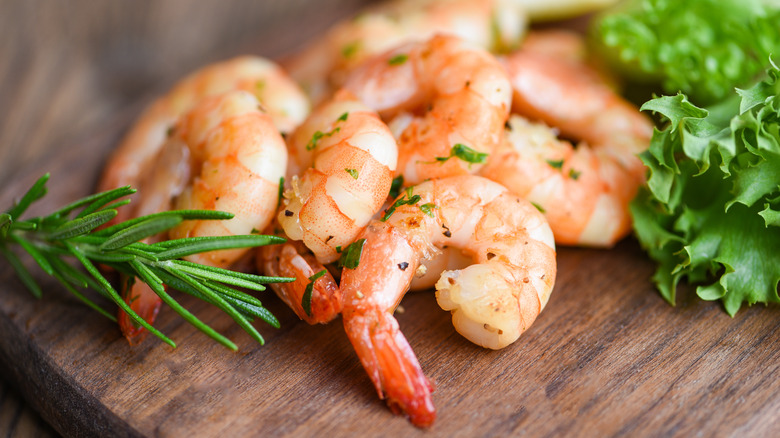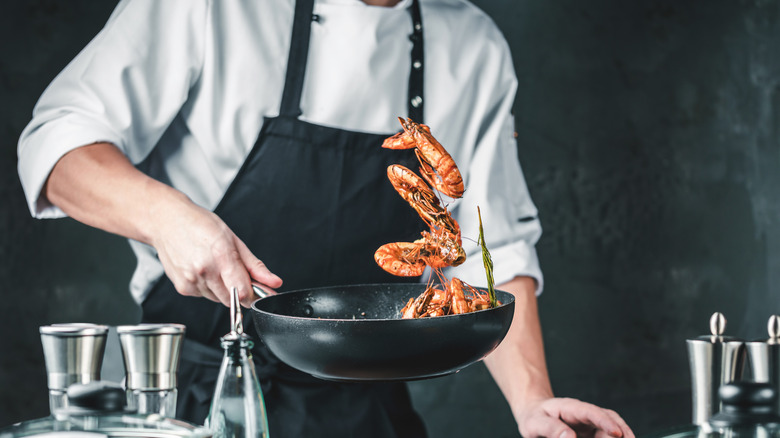The Real Health Benefits Of Shrimp
Shrimp is a popular and versatile shellfish that is eaten around the world. Not only is it tasty, but shrimp offers many health benefits as well. Here's why you should eat this crustacean more often.
According to Healthline, shrimp has many nutrients for a low amount of calories. One 3-ounce serving of shrimp only has 84 calories. That same 3-ounce serving also packs 18 grams of protein, zero carbs, and minimal fat. As far as nutrients go, one serving of shrimp contains selenium, vitamin B12, iron, phosphorus, niacin, zinc, and magnesium.
Shrimp is one of the best ways to naturally add iodine to your diet, which is a mineral that most people do not consume enough. Iodine assists with brain and thyroid health. It also contains omega-6 and omega-3 fatty acids, which can improve heart health, decrease inflammation, and offer a host of other benefits.
It may surprise some people to learn that shrimp contains a powerful antioxidant called astaxanthin. This can protect against free radicals, reduce the risk of developing certain diseases including heart attacks, improve good cholesterol, and improve brain health.
Some people avoid shrimp because of its cholesterol content
Shrimp contains a high amount of cholesterol, which makes some people concerned about eating it. According to Verywell Fit, cardiologists used to advise against the consumption of this shellfish because of its cholesterol content. However, recent studies have found little evidence to link dietary cholesterol, the kind that is found in shrimp, with cardiovascular disease.
Shrimp is extremely versatile and can be prepared in many different ways. Shrimp that has been cooked and chilled can be added to salads for a protein and nutrient boost. Shrimp cocktail is another popular way to enjoy this shellfish cold and served with cocktail sauce. It can also be grilled, steamed, or sauteed to be added to many different dishes.
When preparing this food, remember that it cooks very quickly and can become dry and tough when overcooked. However, shrimp should be fully cooked before enjoying. You can tell shrimp has been fully cooked when the flesh turns pink and becomes opaque. You can also prevent shrimp from drying out while cooking by marinating it before you add heat.


